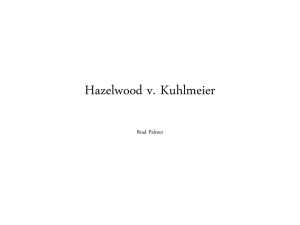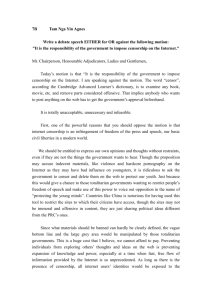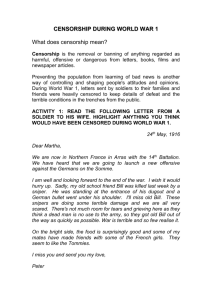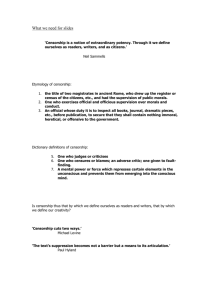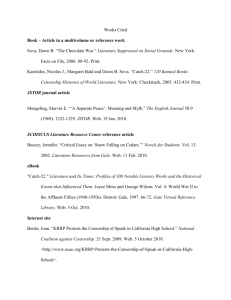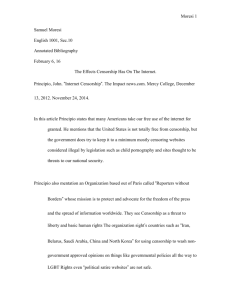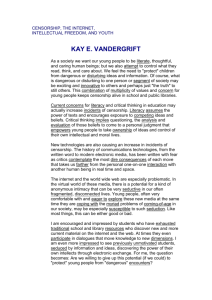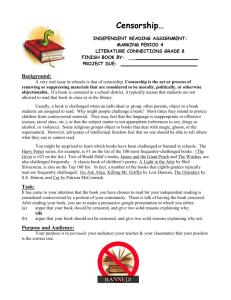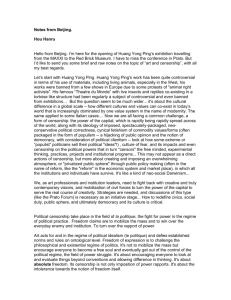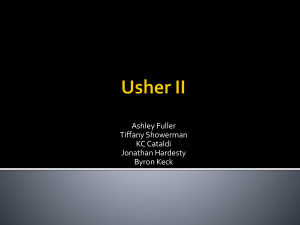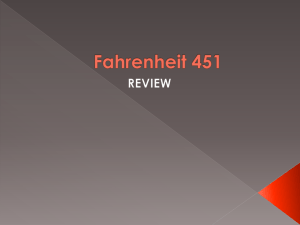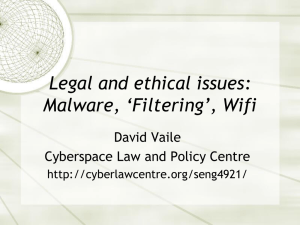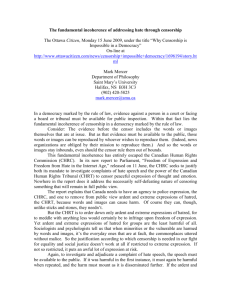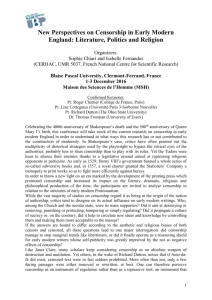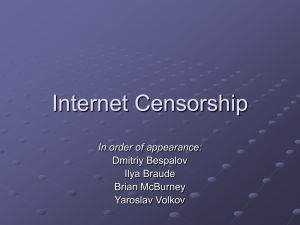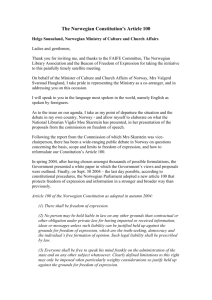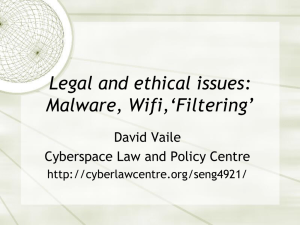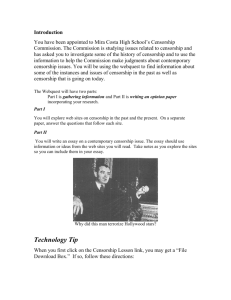Persuasion Lesson 11
advertisement
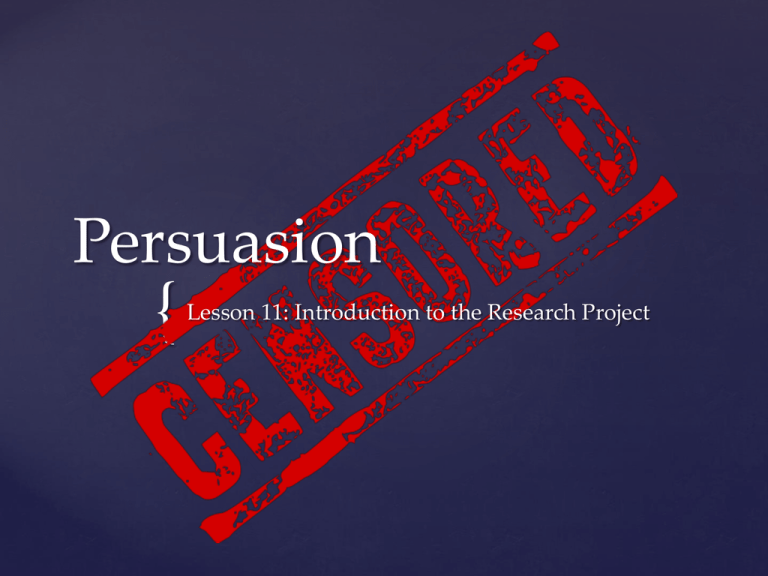
Persuasion
{
Lesson 11: Introduction to the Research Project
What is the meaning of the term censorship?
The suppression by authorities of information,
communications, or media that are considered
offensive or dangerous.
What examples of censorship have you heard
about or experienced?
How might censorship affect libraries in
schools and communities?
11.1 Learn About the
Research Project
Turn to SA 11A. List answers to three
questions on your paper.
What do we know?
What do we need to know?
How can we find out?
Draft a statement of the issue to be researched
in your own words. Record this statement in
the space provided at the bottom of page 11A.
Share your statements with your partner; revise
your statements as necessary.
11.1 The Research Project
Censorship is an issue.
What is your sense of the meaning of the word
issue?
An issue is a real-world problem or controversy
that people are discussing or should be discussing.
Turn to SA 11B.
What is the difference between a topic and an issue?
Ex: Penguins= topic
Ex: What should be done to reverse the destruction
of habitat that now endangers the survival of
penguins as a species? = issue
11.2 Define the Characteristics of
an Issue
Consider how censorship of library books
exhibits each characteristic of an issue.
Complete SA 11B independently.
We will discuss your responses when everyone
has had a chance to finish this page.
11.2 Define the Characteristics of
an Issue
Turn to SA 11C.
Turn to pg. 95 and read “Libraries Should
Reflect Majority Values” by Phyllis Schlafly.
Use SA 11C to take notes as you read.
11.3 Consider Two Points of
View on Censorship
Turn to pg. 97 and read “Libraries Should
Reflect Diverse Views by the American Library
Association.
Use SA 11D to take notes as you read this
article.
11.3 Consider Two Points of
View on Censorship
{
Reflect Majority Values
{
Reflect Diverse Views
Compare/Contrast Viewpoints
Are enough reasons given to make the argument convincing?
Is the supporting evidence factual and correct?
Are the reasons clear? Are they explained thoroughly, or is
more information needed?
Are the reasons and evidence specific, or are they general and
vague?
Are the reasons strong and important, or do they seem to be
included just so that the author has something to say?
Is the argument logical? Do the sentences seem to go
together, and does their sequence make sense? Or does the
paragraph sound like a set of disconnect statements?
Evaluate Articles Using
Standards of Reasoning
Turn to SA 11D.
You will be divided into groups of three
students.
Work together to summarize the issue, identify
stakeholders, and describe the stakeholders’
positions.
Write down your own position on the issue and
discuss it with your group.
11.4 Begin the Research Project
In your role as editor of a city newspaper, you
will need to take and support a personal point
of view on the issue, not simply summarize
known facts in a report or other product.
Write a persuasive paragraph explaining and
defending your initial position on the issue.
Exchange your papers with a partner.
Use the Hamburger Model and the Standards
of Reasoning to critique your partner’s work.
11.4 Begin the Research Project
The essays by Phyllis Schlafly and the
American Library Association represent only a
sample of the many books, articles, and other
sources that are available on the subject of
censorship.
In your research, you may also have to use
primary resources, such as interviews or polls.
Turn to SA 11F.
11.4 Begin the Research Project
Your ultimate assignment is to develop a
persuasive editorial and speech, explaining and
defending your p.o.v. on the issue.
A draft of the essay is due by Lesson 20..
The final essay and speech are due by Lesson
22.
11.4 Begin the Research Project
Continue to work on your research project. Look for
resources that provide information about
censorship, particularly in school libraries.
Complete the draft of your persuasive letter
expressing your opinion about a concerning issue
(from lesson 9). You will revise this letter in lesson
12.
Continue reading your third novel and working on
the questions from 1B or 1C.
Continue collecting advertisements for lesson 19.
Homework


